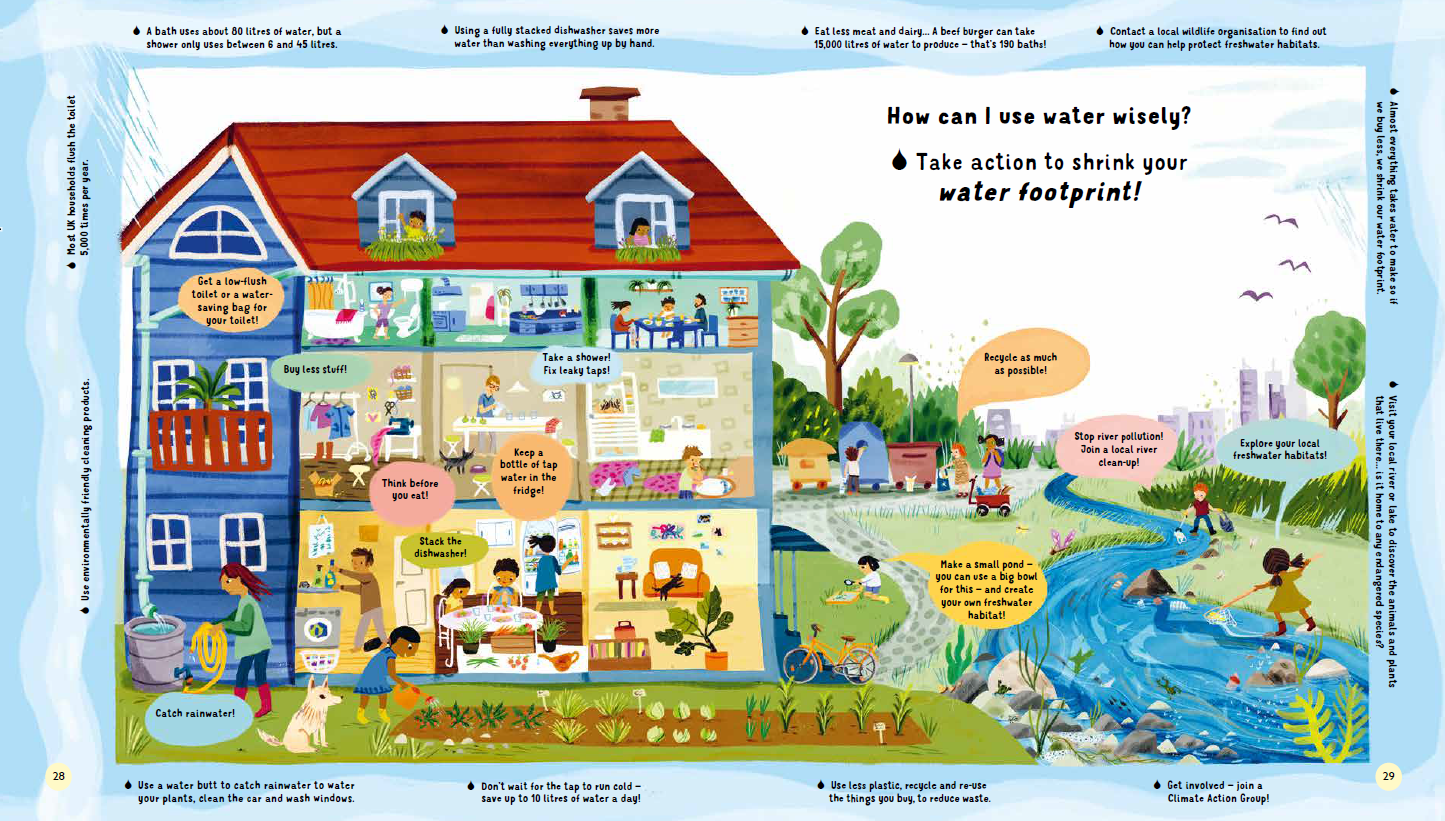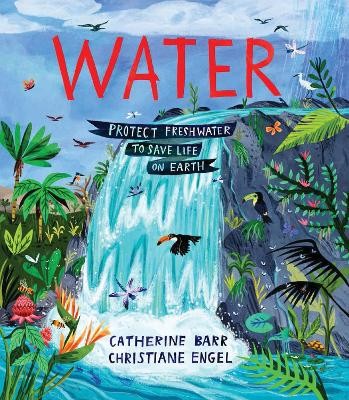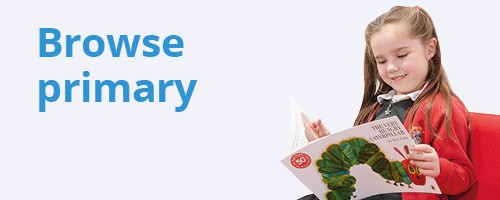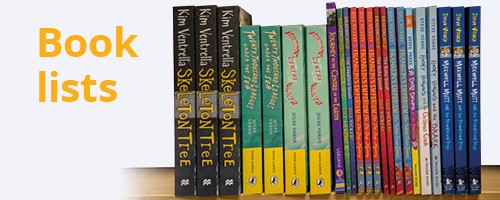Please note that our final date for delivery (schools and libraries) this year will be Thursday 19 December. You can continue to place your orders online throughout the festive period, and delivery will recommence from Monday 6 January 2025. We wish all of our customers a restful Christmas break and a very happy new year.
For help, advice and telephone ordering call our team on 0121 666 6646
Are you sure you wish to delete this basket?()
This action cannot be undone.
Sorry, something went wrong
Please report the problem here.
Shrinking your water footprint – ideas from Catherine Barr

March 1st 2022
Catherine Barr became an author unexpectedly, after searching in vain for the story (rather than a text book) of evolution for her two girls, then at primary school. Her co-author is science teacher Steve Williams, and their series now includes The Story of Space, The Story of People, The Story of Inventions and The Story of Climate Change. She now spends most of my time researching, writing and imagining non-fiction stories for children for the PSHE curriculum. Living close to the Welsh hills, she writes to encourage children to get involved in protecting our natural world.
Writing Water: Protect freshwater to save life on Earth, I wanted to paint a big picture. Starting with the first raindrops on Earth and culminating with our responsibility to value and share this precious resource. It is the United Nation’s Water Action Decade (2018-2028) – a perfect opportunity to talk about why water is news. Christiane Engel’s vibrant illustrations and charming characters engage children in scenes from the first water on Earth to the water cycle, life in freshwater habitats, pollution, climate change and using water wisely in this global story.
As always in writing KS1 non-fiction books for children, I learn so much about topics I explore and I love this journey. I developed the content of Water in consultation with Peter Newborne, Senior Research Associate to ODI’s global affairs think tank, the Climate and Sustainability Programme. His enthusiasm for raising awareness of the topic sparked so many fascinating conversations. I also discovered details… from former CEO of Severn River Trust Mike Morris, I discovered the many different types of fish ladders help salmon leap up past hydroelectric dams to reach their spawning grounds. This research is one of the most fascinating aspects for me, of writing picture/ information books. My hope is always to ignite curiosity whether in classrooms, kitchens or bedtime reads; and flag opportunities for children to get involved in caring for the natural world.
PSHE Curriculum Books
In the primary curriculum, there are many ways to explore the topic of water in topics from science to geography, music, art and PHSE. But critically, Water focuses children’s attention on freshwater being unequally used and shared around the world. From the global picture to personal responsibility, the book concludes with plenty of ideas for using less water everyday.
Tips for shrinking your water footprint:
- Have a low flush toilet - or pop in a ‘water hippo’ to reduce the amount of water used in each flush
- Keep a bottle of water in the fridge to avoid running the tap until you have cold water for a drink
- Take more showers than baths
- Eat less meat (a beef burger can take about 190 baths’ worth of water to produce!
- Use a water butt to collect rainwater and recycle to water plants, clean and car and wash windows
- Buy less stuff! (Making most things involves using water…)
- Visit your nearest wetland habitat to explore freshwater life for yourself
- Talk to your local wildlife organisation to help clean up your local river
I am particularly delighted that the global charity Frank Water have endorsed our book and will benefit from copies sold. Under a PHSE topic for primary curriculum, teachers might be interested to explore the personal stories from their projects in India and Nepal. They will inspire children with empathy and understanding of differences, and injustice of access to clean water around the world.
Also under the freshwater umbrella, there are simple science experiments for both the classroom and outdoors. The topic provides an excuse to don wellies and splash into puddles and ponds and investigate freshwater versus marine species. Spanning from local to global, children will be wide-eyed at the stories of species adapting to live in global wetlands from the watery lions Okavango Delta’s lions to caimans and jaguars of the world’s largest tropical wetland, the Panatal. Children can also discover the fascinating lives and stories of indigenous people living in the watery margins of these remote threatened habitats worldwide.
In talking about Water in classrooms, I am looking forward to questions that send me back to my sources and freshwater experts working so hard to build a water-secure future for us all. Please do get in touch via my website if you’re interested in a Water workshop in school. catherinebarrbooks.com
Free school resources on Water can be downloaded via the Peters website here.
Useful links:
United Nation’s Water Action Decade (2018-2028): 10 years to achieve safe and affordable drinking water for all by 2030. https://wateractiondecade.org/
World Water Day 22 March. www.worldwaterday.org
World Toilet Day 19 November. www.worldtoiletday.org

Water: protect freshwater to save life on earth by Catherine Barr is out from 3rd March 2022.
Find out more about Catherine's books on her website.








